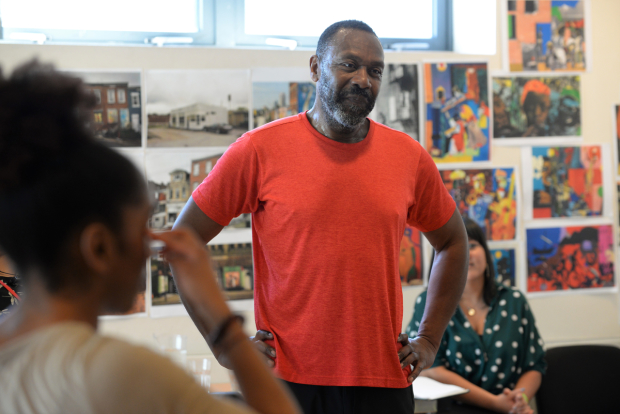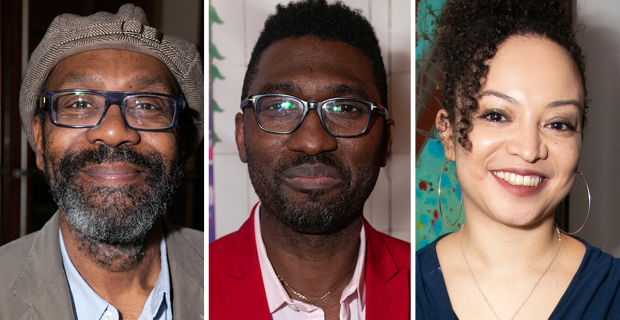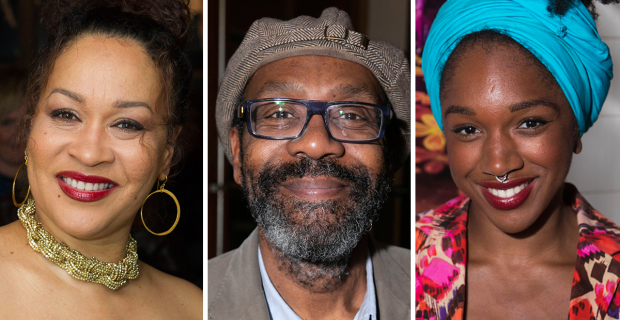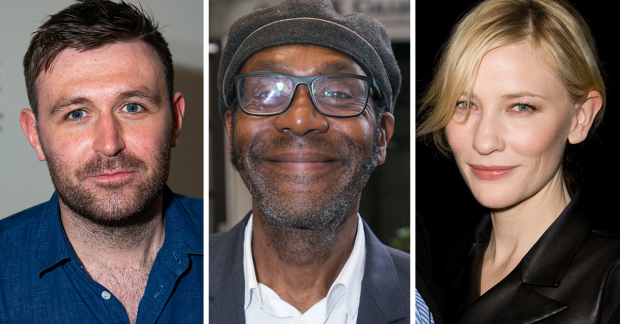Review: King Hedley II (Theatre Royal Stratford East)
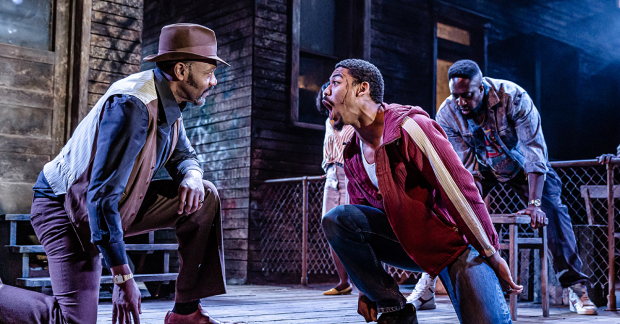
© The Other Richard
Even with the ever-popular Lenny Henry as one of your leads, and his grizzled face staring down from the posters, this 1999 play by August Wilson is a bold choice to stage. It's punishingly long (at 3 and a half hours, longer even than some of the Greek tragedies to which it aspires) and unremittingly dark. It's full of long, poetic passages about God, death and hell, and its plot is revealed in great gobbets of dialogue rather than through action.
On the other hand, its bleak relevance to the world of young black men growing up today, afflicted by social prejudice, searching for role models, losing their lives in pointless violence, makes it understandable why the Theatre Royal's artistic director Nadia Fall felt that she should programme it.
Set in Pittsburgh, against the backdrop of Reagan's America, it is the penultimate instalment of the epic 10-play series – the American Century Cycle – that Wilson wrote about African American lives, each representing a different decade of the 20th century. It's essentially an ensemble piece, focused around King Hedley II (Aaron Pierre, all bulging muscles and boiling frustration) a young man who has served seven years in prison for killing a rival who scarred his face, and who now finds himself trying to make his way in a harsh economic climate of the trickle-down economics that forces black communities to scrabble for money in any which way they can.
This poverty of aspiration fuels the play's fury, as it portrays King and his friend Mister (a terrific, amiable Dexter Flanders) trying to sell stolen refrigerators and taking any job going to save enough money to open a video store. "I used to be worth $1,200 during slavery. Now I'm worth $3.30 an hour," King cries at one point. But he is also surrounded by death, which is there in the tortured outpourings of his next-door neighbour Stool Pigeon, and in the fears of his wife Tonya, reluctant to bring their baby into the world. "I ain't raising no kid to have somebody shoot him," she says, with terrible despair. "I don't want to raise no more babies when you got to fight to keep them alive."
Wilson's purpose is to reveal the way that these people could have been contenders, could have climbed a mountain to success, but are held back not only by circumstances, but by a terrible cycle of revenge and confusion about what it means to be a man, which is triggered by the arrival of Lenny Henry's hustler Elmore, a chancer, a charmer and a dangerous man, who is in love with Ruby, King's mother.
Peter McKintosh's bleak, recessed set, perfectly captures the meanness of the wooden slatted houses in which the characters live and the barren backyards where – with heavy symbolism – King places barbed wire over his patch of seeds to make them grow. Fall's direction is tightly-wrought and carefully-detailed; from the moment the play begins you know something terrible is going to happen and it's to her credit that until the very end, when the whole thing tips over into a kind of Grand Guignol madness, she keeps it so fierce and intense.
She's much helped by the performances. Pierre capture's King's rage and sense of futility and Henry, despite the lightest of American accents, is both charming and lethal as the smooth-talking Elmore. But it's Martina Laird as the wistful Ruby, her voice like molasses and her eyes full of hopes for a different life, who completely transfixes, her slow recollections and stories, her sadness and her hopes, holding the audience in the palm of her hand. She's matched by Cherrelle Skeete in the slighter role of Tonya, moving and convincing as a woman holding everything together but stalked by a terrible fear that it will all go wrong, and Leon Wringer who makes the religious visionary next door more than just a shouting lunatic.
It's a committed production of an intense and difficult play, not always easy to watch, but somehow worth it.



